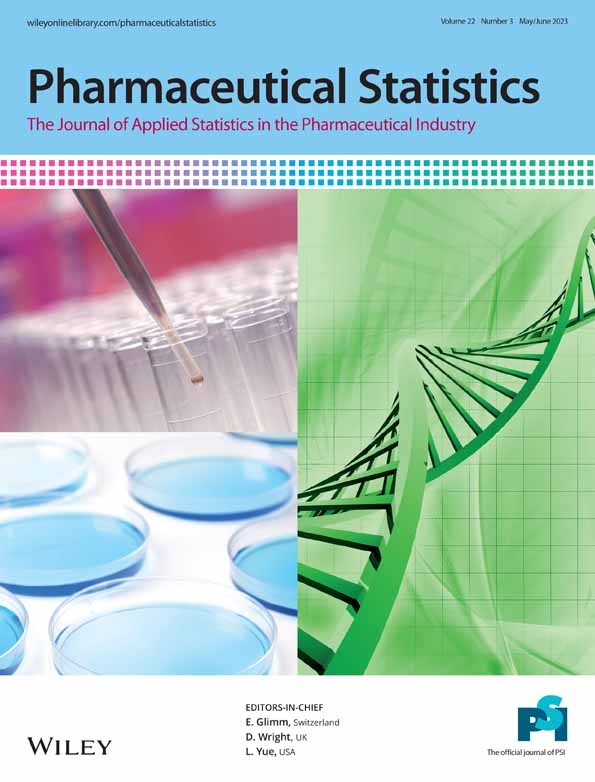A fiducial approach for testing the non-inferiority of proportion difference in matched-pairs design
Abstract
The non-inferiority of one treatment/drug to another is a common and important issue in medical and pharmaceutical fields. This study explored a fiducial approach for testing the non-inferiority of proportion difference in matched-pairs design. Approximate tests constructed using fiducial quantities with a combination of different parameters were proposed. Four simulation studies were employed to compare the performance of fiducial tests by comparing their type I errors and powers. The results showed that fiducial quantities with parameter performed satisfactorily from small to large samples. Therefore, the fiducial tests could be recommended for practical applications. The recommended fiducial tests might be a competitive alternative to other available tests. Three real data sets were analyzed to illustrate the proposed methods were competitive or even better than other tests.
CONFLICT OF INTEREST
The researcher claims no conflicts of interests.
Open Research
DATA AVAILABILITY STATEMENT
The authors confirm that the data supporting the findings of this study are available within the article. Data sharing not applicable to this article as no datasets were generated or analysed during the current study.




